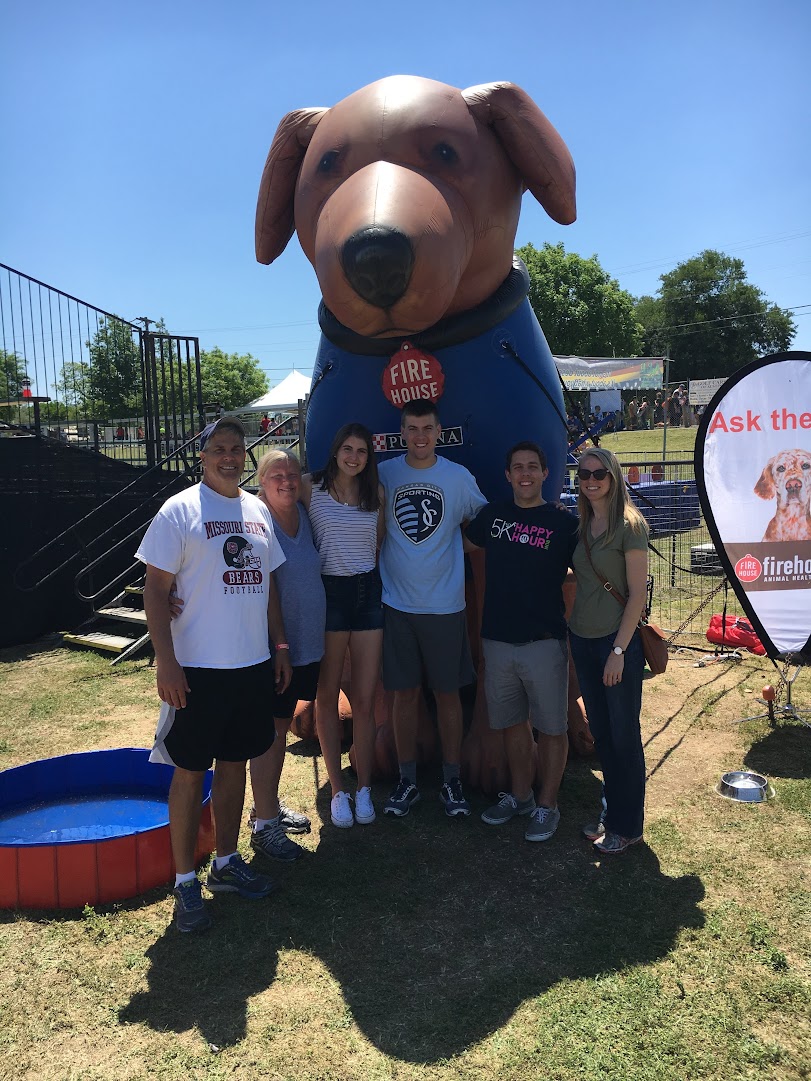
Death has a way of making its presence known. Last week, it visited my life twice.
First, I learned that my best friend Kevin’s father, Russ Sikes, had passed away. He had been sick for a while, so the news wasn’t shocking – but there’s something about the finality of it that makes it hard. Russ was a second father to me. Growing up, the Sikes’ house was my second home, and he was a constant, steady presence in a formative chapter of my life.
A few days later, my mom’s cousin, Mike Johnson, also passed. He was an “uncle” to me (not actually an uncle and I’m terrible at knowing how family is related). I only ended up seeing him every couple of years, but I will always treasure those infrequent visits.
Losing two men who played such significant, albeit different, roles in my upbringing has left me with a strange mix of emotions. You would think the primary feeling would be sadness, and of course, there is grief. But the emotion that has risen above all others is a profound sense of gratitude. I find myself less sad that they are gone and more deeply happy for what they gave.
Russ was my coach, in every sense of the word. His dedication was legendary. I don’t know of any other youth sports coach who would spend his evenings watching other elementary school teams play just to write up detailed scouting reports for us. He would print out binders of information on our opponents, pointing out who had a weak left-handed dribble or which batter tended to swing at the first pitch. Looking back, I realize this incredible effort wasn’t just about winning a game. It was a masterclass in dedication. He was showing us, through his own actions, what it meant to pour your whole heart into something. He taught us that the little things matter, and that showing up with your absolute best effort is a victory in itself.
Then there was Russ, the Executive Producer of “Hunky Spunky Productions.” When Kevin and I were consumed by our filmmaking dreams, Russ was our biggest supporter. When a scene required both of us to be on screen, he was always the man behind the camera. He didn’t just tolerate our creative chaos; he actively enabled it. He bought a camera, editing software, and even painted a bedroom wall that famously ugly bright green so we could have a proper green screen, complete with a row of lights he installed himself. When we finished our hour-long “feature film,” he reviewed the script, provided snacks for our “crew,” and was our most enthusiastic audience. I can still hear his booming, over-the-top laugh at every single joke, no matter how bad it was. That encouragement was the fuel that kept us creating.
Mike, or “Big Daddy” as so many knew him, taught me about joy. He was a retired school coach from Arkansas who poured his heart into his family and his community. When the extended family got together, he’d pull out his guitar, and soon the whole room would be singing. He had the most contagious, giddy laugh, and it was a rare sight to see him without a smile. He didn’t have a wife or children of his own, so he shared his immense love with everyone else—his nieces, nephews, cousins, and the countless students he coached. He taught me that joy is a gift you create and share.
I speak very highly of both these men, so why haven’t these losses left me feeling more broken?
The answer: in their deaths, I see life.
After Russ’s funeral, while adults stood around sharing memories in quiet conversation, my three young children were running around the church foyer. They were laughing, chasing each other, blissfully unaware of the somber occasion. In that moment of chaotic, beautiful, vibrant life, I found my comfort. It was a visceral reminder of what matters most. To get past death, you must have life.
Since becoming a father, my world has been fundamentally rewired. My anxieties and hopes, once cast wide across society and the future of the world, have now been focused into a powerful, concentrated beam. My world has become beautifully small, revolving around the six small feet (soon to be eight) that run my household and my heart.
This isn’t to say I’ve become cold or that the loss isn’t real. It’s that my focus has shifted. My heart is no longer primarily anchored in the childhood that Russ and Mike helped shape, but in the childhoods I am now responsible for shaping. My kids are my present and my future. They make everything fuller, harder, more chaotic, and more wonderful. They are both exhausting and fulfilling, and they demand a version of me that is focused forward.
Both Russ and Mike were masterful coaches and father figures. They knew that their most important work wasn’t just about winning a game, but about shaping character. They were building a legacy.
Fatherhood is something I take very seriously, and I see now, more clearly than ever, that it is the ultimate form of coaching. When done well, it’s a gift passed down through generations. I hope to be for my children what these men were for me and so many others: a steady presence, a source of joy, and a model of a life well-lived.
Death reminds us of what’s been lost. But in its wake, life reminds us of what we have and what we must build. Thank you, Russ. Thank you, Mike. The best way I can honor your memory is to carry your lessons forward and strive to be the father you taught me to be.